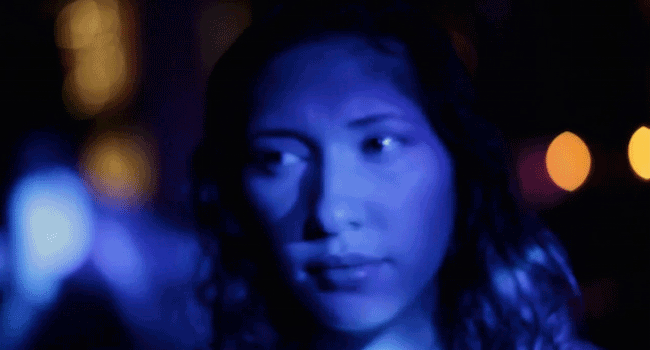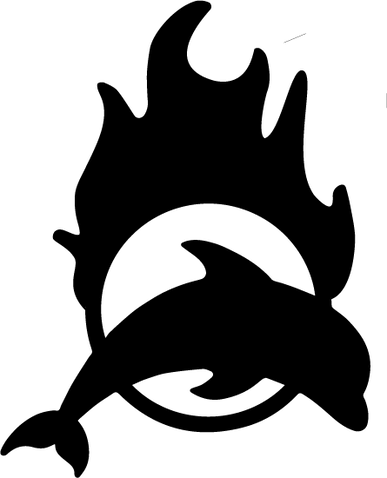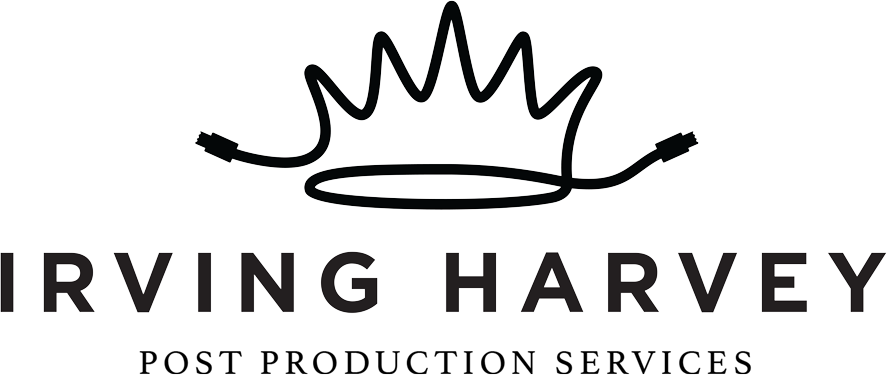
Chlorophyl
2011
Barry Jenkins
Ana is a young woman struggling to get over the last vestiges of a failed relationship. She moves through the day in a sort of trance, unable to absorb her situation and unwilling to face the reality before circumstance forces her to confront the truth. Set in modern Miami, the film explores an emotional space very much like the physical one " a wistful nostalgia for a different era, a girl coping with upheaval and frustration as the relationship she once had is replaced by absence, rejection and sadness " and all with a newness so sudden she is dumbstruck into silent contemplation.
Barry Jenkins created this film for Borscht 7
PRESS
”Jenkins will be the reluctant star of the show, the city's shy prodigal son returned home to show off his filmmaking talent. He's a jock from Miami's most dangerous neighborhood who has quickly become one of the most sought-after young directors in the nation. ”Miami New Times
"[A] film that captures space as well as character…. As a film with a regional focus, it’s meant to be true to the world its characters inhabit, existing in the same spaces that facilitated its making. Chlorophyl reflects a version of the Miami experience and relays it in a way few filmmakers have tried. It’s part of a movement to give voice to a city that too often has let others speak for it." Filmmaker Magazine
"Chlorophyl, the 25-minute short directed by Miami native Barry Jenkins, stars first-time actress and Miami local Ana Trevino. It premiered at last month's Borscht Film Festival. If you saw the movie, regardless of your opinion, it didn't quite fit into the context of the arena in which it was presented.It was wedged between fast-paced, zany flicks like Otto and the Electric Eel and the one-minute home run I Am Your Grandma. By contrast, Chlorophyl was a sprawling mood piece with a quiet look at listlessness by one opaque girl, so perfectly portrayed by Trevino. "Miami New Times
GIFS
essay
On change for the non-chlorophyllic organism
by Bernardo Britto
Photosynthesis is one of those incredibly beautiful processes of the natural world, something that has evolved over millions of years to be as simple and efficient as possible. Plants absorb light energy through chlorophyll, use it to convert water and carbon dioxide into sugars, and expel oxygen. It’s an almost invisible occurrence, a highly internal reaction—transforming something that would normally have very little value for us into something that fuels our every breath. It takes place everyday, all over the world, and yet we barely notice it.
In a way, that’s essentially the nature of change. It is a constant occurrence that we barely notice. Consider the amount of change going on inside your body at every moment, the millions of cells dying and regenerating. We are always in a process of change, we are always in a strange in-between moment—not quite sure of who we are, with only a vague notion of who we were, and only a distant glimpse of who we want to be.
That in-between moment is at the very heart of Barry Jenkins’s short film Chlorophyl. Chlorophyl tells the story of Ana, a twenty-something second-generation Mexican-American immigrant suffering from that universal pang of rejection. In a way, Ana is possibly the ultimate embodiment of the in-between. She has been rejected by almost everything with which she identified herself. Her ethnicity has been reduced to mostly "not-Cuban" and specifically "maybe-Colombian". We get a feeling that "home" in the Hallmark sense never really existed for her, with a childhood split down the middle between Texas and Miami. And, like so many other people her age, she seems to cling onto that childhood as much as she can, spending a lazy day disconnected in a house far too grown up for her. And of course there’s her boyfriend, who seems to have become the most important way she identifies herself. She never explicitly calls him her boyfriend but we get a sense, just in the way she speaks with and about him, that so much of her identity is tied in with being "his girl". It’s hard to tell if she ever felt like she truly belonged anywhere and already, right from the beginning of the film, she feels completely out of place.
She is not in her home, she’s house sitting for someone else. And her boyfriend isn’t there, though he spent the night. And so, she wakes up in a stranger’s house all by herself. It’s an upper-class house, a beautiful piece of architecture complete with art on every wall. She calls her boyfriend; she wants to let him know she’s hurt but she still wants to say, "I love you." When she does, there is a deafening silence on the other end, interrupted only by her own quick "Bye". And, instead of being connected as she talks to him on the phone, they are even further isolated. He appears only by himself in her memory of last night, and the film quickly separates them as easily as night and day. The boyfriend barely appears for the rest of the film (except in a wonderfully wordless climax at a night club named Grand Central) but there’s rarely a scene where you don’t feel his presence—or, rather much more appropriately, his absence—in some way.
Like the perfectly decorated house she wakes up in, this is a film steeped in the minimalist tradition—less is more. While Jenkins has never been one to force plot contrivances on his characters, Chlorophyl feels even more restrained than his previous work. In his brilliant film school short My Josephine for example, Jenkins relies mostly on voiceover to convey character and mood. And a big part of the pleasure in watching his breakout debut feature Medicine For Melancholy is in the interaction between Micah and Jo. But in Chlorophyl Jenkins leaves Ana on her own. She gets no voiceover to clue us in to her emotional state (though she does teach us about chlorophyll) and no foil as a contrast. He makes us observe her from a distance, constantly reinforcing her isolation not only dramatically but also visually, deliberately separating her from her environment.
Given that the film centers on a mostly passive, isolated individual, Jenkins is also very smart in how he reveals information to the audience. We already get everything we need to know right in the opening phone call with the boyfriend. It sets up not only the conflict and the visual language for the film, but also perfectly encapsulates Ana at this point in her life. Later, when Ana is modeling for photographs, Jenkins turns what could have been a frustrating, exposition-heavy scene into a really beautiful moment. For the first time Ana becomes more than just "a girlfriend" to the audience, while simultaneously still keeping us at a distance. We don’t get to watch her relate any of her history; instead she appears frozen in photographs as a man interviews her. The pictures range from uncomfortable to candid to beautiful; and somehow, somewhere in between those intangible cuts, we get a glimpse of her true self. But the movie never fully announces it. Even the afore-mentioned climax at Miami’s Grand Central happens without much fanfare. It’s non-confrontational in the same way that life really is and drama is always too afraid to be. After all, this is a film borne out of a song ("Chlorophyl" by MillionYoung) where the lyrics are barely audible, preferring instead to relay a feeling and a mood. This is a film inspired by the decidedly uncinematic process of photosynthesis, an internal reaction that is as vital as it is imperceptible.
But just like it would be wrong to assume that plants do nothing all day, so it would be to say that nothing happens in this movie. The wonderful thing about the film is that there is a lot happening—one could argue Ana’s entire adult identity is being forged—but we don’t see any of it start and end, A to Z, like so many movies tend to do. Instead we are shown a process, an evolution. Plants take in light and carbon dioxide and expel oxygen. It’s an ongoing process, and it’s part of a much bigger cycle, which never ends but instead waxes and wanes with each sunrise and sunset in conjunction with all other life. There is never going to be a moment where Ana reaches her destination. She’ll never achieve the "ultimate boon" that Joseph Campbell detailed. As James Baldwin so perfectly postulates and Jenkins so perfectly quotes, "Love does not begin and end the way we seem to think it does. Love is a battle, love is a war; love is a growing up." To that I (perhaps unnecessarily) add, nothing begins and ends the way we seem to think it does. It’s all a process, an in-between moment.
It would be a stretch to call Chlorophyl a Miami Movie™, but I also can’t imagine a better backdrop for this story. Here is a major American city, with the fourth largest urban area in the country, that’s still trying to figure out its identity. It doesn’t fit in with the rest of Florida, much less the South. It barely even fits in with the rest of the United States. Unlike New York which incorporates all its many different immigrants into proud "New Yawkers", people who come to Miami rarely become Miamians. They cling onto their past homes, somehow unable to reject that past and move forward towards a collective future. Jenkins, a Miami native who returns to what I assume is a much different Miami than the one he grew up in, doesn’t make any overt comments on the city. He photographs the city’s brand-new buildings and its flora all with equal beauty. While Ana tries to come to terms with her now-unrequited love and Miami grapples with its incredibly sudden changes, at least Jenkins has learned to enjoy the in-between. This isn’t a nostalgic view of a city that doesn’t exist anymore. This is very much Miami as it exists today. Jenkins seems to accept it, and though he may feel like he doesn’t belong in its streets anymore, at least he isn’t looking back.
Towards the end of the film, Ana finally arrives in her own home. Her apartment seems old, by far the oldest interior in the movie, but it also seems lived-in, pleasantly cluttered in a way that only happens through actual time spent living somewhere. She takes a shower and gets rid of the purplish colors she’s worn for most of the movie (blue and red being chlorophyll’s preferred colors in the spectrum). She changes into a greenish top, which is the one part of the spectrum that chlorophyll rejects. She’s clearly had a change of attitude but she still doesn’t feel like she belongs, tossing and turning in her own bed. And who’s to say if she’ll ever feel like she truly belongs? The important thing is that she has started to accept that rejection. She has started moving away from that past. It’s not an easy process. But it is a process.
And the best we can do is let go.
And, if all else fails, refer to James Baldwin:
"Any real change implies the breakup of the world as one has always known it, the loss of all that gave one an identity, the end of safety. And at such a moment, unable to see and not daring to imagine what the future will now bring forth, one clings to what one knew, or dreamed that one possessed. Yet, it is only when a man is able, without bitterness or self-pity, to surrender a dream he has long cherished or a privilege he has long possessed that he is set free—he has set himself free — for higher dreams, for greater privileges."
SCREENINGS
International Film Festival Rotterdam, 2017
Borscht Corporation
Borscht Special Projects
Calle 27 #601 e/ C y D, Vedado
La Habana, 10400, Cuba

 Borscht Corporation
Borscht Corporation











